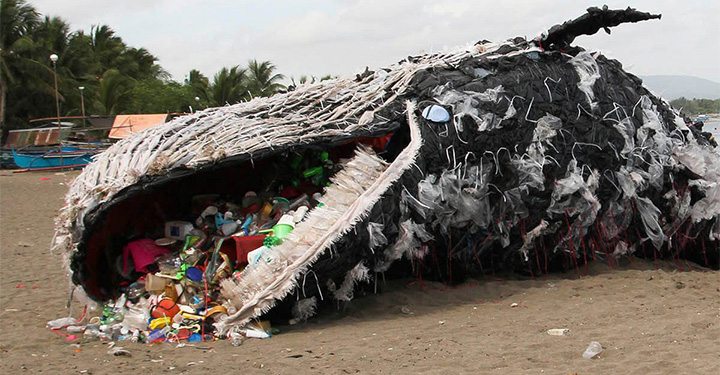Another World Environment Day passes off with the usual blah-blah, with little of seriousness in thinking about the way humanity, the governments and institutions should alter their behaviour to arrest climate change and thwart the impending ills. While every year the day comes with a special theme, this time it was on the need to ‘Beat the Plastic Pollution’.
Plastic is, without doubt, a major villain of the piece. It is harming environment in multiple ways, mainly by polluting the oceans and closer home by clogging drains and causing toxic effects that have been proven to be harming human health. Its manufacture, use and disposal or eventual destruction are all actions that harm the environment. Plastic takes generations to perish. Normally, plastic items can take up to 1,000 years to decompose in landfills. But plastic bags we use in our everyday life take 10-1,000 years to decompose, while plastic bottles can take 450 years or more, and till then they will be around here somewhere, spreading poison including deadly carcinogens into the atmosphere.
Looking back, all of us have heard about plastic’s peril for many years. Governments were exhorting businesses and citizens to avoid use of plastic as far as possible, if they cannot fully eliminate it. A progressive reduction in its use is both advisable and a need of the hour. While many other countries effectively managed to reduce their consumption, we in India lacked sustained efforts to rein in the use of plastic and have not succeeded much primarily because there was dithering at all levels. Since we do not enjoy the benefits of a conscious and pro active society, it was important that government steps in to regulate at the production of plastic goods. It is to be noted that base raw material for production of plastic items are imported. A severe reduction at the import level could have easily brought down availability of plastic goods. The very fact that the UN has come up with this theme for this year also showed that the rest of the world, too, had to make significant strides in this endeavour over the past many years. Notably, though, advanced countries, which move about in a more disciplined manner, have substantially reduced the use of plastic. They have instead turned to other forms of packaging material for use in not only department stores and other trading places but also industry.
The options for packaging include hard paper packets and jute bags. It should be remembered that jute is indigenous to India and was being extensively farmed all across the eastern part of this country. However, with industrialisation, the big corporate managed to throttle the jute industry, both at the farm and the production level. Paper packaging, on the other hand, proves expensive. It is because of this that small businesses shy away from the campaign to discard plastic in daily use. Paper itself is not acceptable to environmentalists for widespread use, for the reason that trees need be cut to make paper. Jute thus wins over paper in the matter of packaging and for use as carry-bags. A revival of jute’s days are envisaged and hoped for — from its near oblivion following the arrival of plastic bags. The jute economy that lifted the spirits of eastern India, particularly Odisha and Bengal in the pre-Independence period, can still have a much hoped for revival.
Environmentalism is a sacred cause for the sustenance of humanity and its spirit spans much beyond the campaign against use of plastic. Our water bodies, state after state, are in a highly contaminated condition. The reasons are not far to seek. The filth from urban centres and pollutants from an uncaring industrial sector find their way to rivers, ponds and backwaters, carried in as waste water or, if solid, in normal course by rain water. Cleaning of water bodies today is nobody’s business. Civic bodies earmark funds; the Central and state governments, too, do this in big figures but the money literally goes down the drain. That means money is spent in such a manner that eventually it reaches a state to be labeled as used for unknown purposes. Thousands of crores have been allotted by the present government during the past 3 years for cleaning the north Indian river Ganga, but its state still remains pitiable. So is the case with the other rivers and water bodies across the country. Canals in the vicinity of urban sprawls remain clogged and contaminated beyond imagination, and there is little of attention or effort to clean them up.
Environmental awareness in India is largely manifest, sadly, in the activism of selfish elements out to make a kill and extract money from one or other source. Greed guides them. Successive ministers at the Union level perhaps helped make a mess of it. The bureaucracy used the environment ploy to rake in huge sums for personal aggrandizement. Activists are sometimes genuine while the unscrupulous ones among them also use the path of filing legal cases which helps mainly in blocking projects which, in turn, brings in the loot. Courts are helpless to discern the good from the motivated. Ultimately, the nation and the world suffers because the people do not care. As one more Environment Day passes, it is time also for people to resolve to be more reasonable and sensible in their attitudes and actions and do their bit to chip in. We cannot and should not wait only for the government machinery to act and save us.
